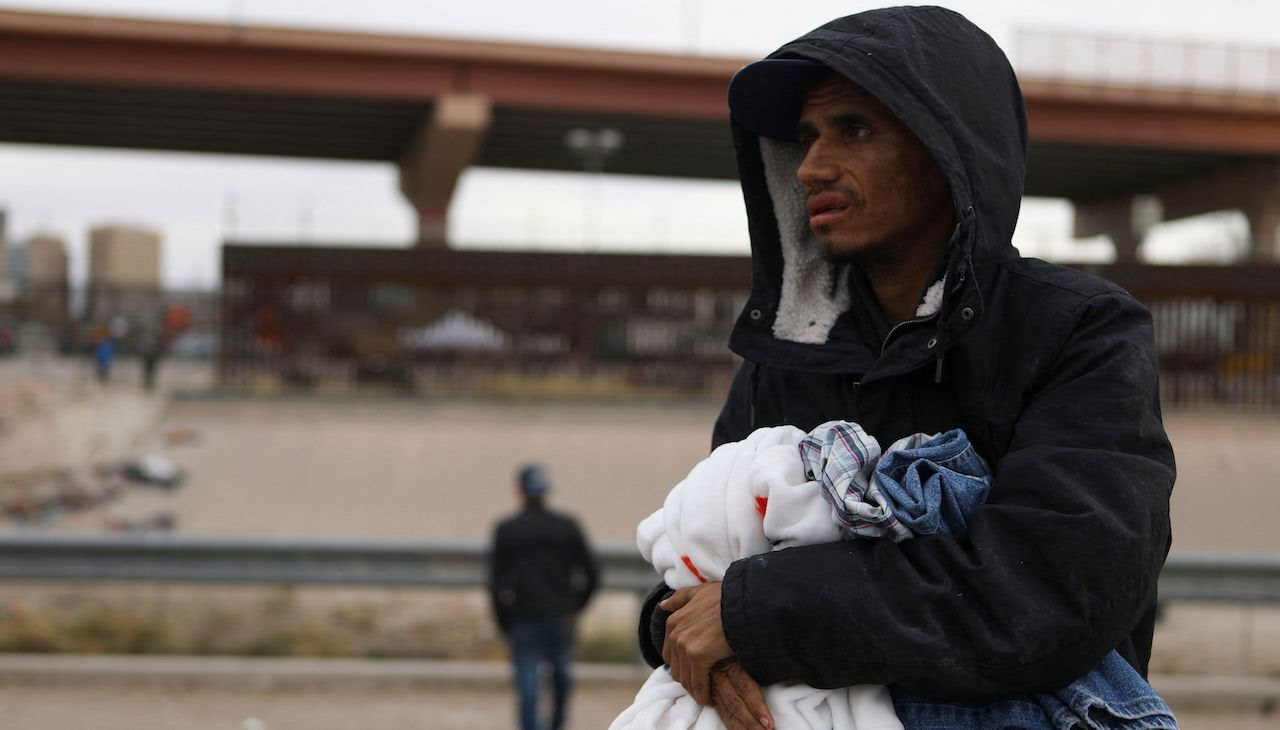
Biden administration policy changes contributing to adult migrants being held longer in border facilities, sources say
Sources told CNN that adult migrants are staying in U.S. custody for over ten days and up to 30 days for others due to asylum policy changes made this year.
As first reported by CNN, President Joe Biden’s asylum policy that bars migrants who traveled through other countries on their way to the US-Mexico border from applying for asylum has led to migrants remaining in border facilities for over 10 days ad some for up to 30 days.
Introduced last February, the policy was the administration's efforts to toughen its stance on the southern border.
According to US government policy, migrants should not be held for longer than 72 hours in US Customs and Border Protection facilities, which allow for extended stays as they have historically only held migrants who could be quickly returned to their home country.
However, following the Biden administration’s return to the decades-old asylum policy that alters asylum processing, time in custody has gone past 72 hours over the years.
Biden officials have cited the recent drop in border crossings since the end of Title-42, the pandemic policy introduced by former President Donald Trump that allowed border officials to reject migrants, as evidence that the administration’s tactics which include increased deportations and tougher penalties, is working.
But some officials argue new policies as well as limited resources are leading to migrants having to stay in border facilities for extended periods of time. Immigrant advocates and attorneys have expressed concerns about the limited access to counsel for migrants seeking asylum while stuck in US Customs and Border Protection custody.
One Homeland Security official told CNN that last week, of the more than 10,000 people in CBP custody, more than 1,000 of them had been in border facilities for over 10 days across the US-Mexico border. Some migrants have been in custody for more than 25 days, another Homeland Security official said.
“We’re not built to do this,” one of the Homeland Security officials told CNN, adding that officials are monitoring the situation.
The ever-changing demographics, the increase in border crossings, and dwindling detention capacity in recent years have contributed to the extended stays in CBP custody because of processing and limited resources.
RELATED CONTENT
“Unfortunately, that’s been a constant issue for years. No matter the situation, we’re usually held up by the limitations in capabilities of the next link in chain,” another Homeland Security official told CNN.
Some of the recent policy changes that some officials argue have contributed to extended stays include one introduced this year that intended to expedite the asylum process by requiring that some migrants remain in CBP facilities for their credible fear interviews, the first step in the asylum process.
The screenings typically take place in Immigration and Customs Enforcement facilities, which might have spaces for the interviews and where there’s more access to legal services.
“CBP prioritizes for in-custody expedited removal processing those single adults from nationalities that may be removed quickly, including those who may be removed to Mexico. At times, certain circumstances – which could include the need to transfer individuals laterally due to overcrowding – could extend the amount of time individuals spend in CBP’s custody,” a CBP spokesperson said in a statement.
“CBP works to ensure individuals spend the least amount of time in custody possible while completing processing,” the spokesperson said.
The Department of Homeland Security has set up soft-sided facilities, similar to that of a tent complex, to help house the increase in migrants as they’re processed. They are better equipped than traditional Border Patrol facilities, and include additional holding rooms, showers, and phone booths for migrants, but no beds.











LEAVE A COMMENT:
Join the discussion! Leave a comment.